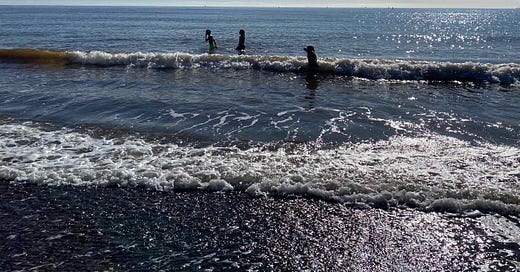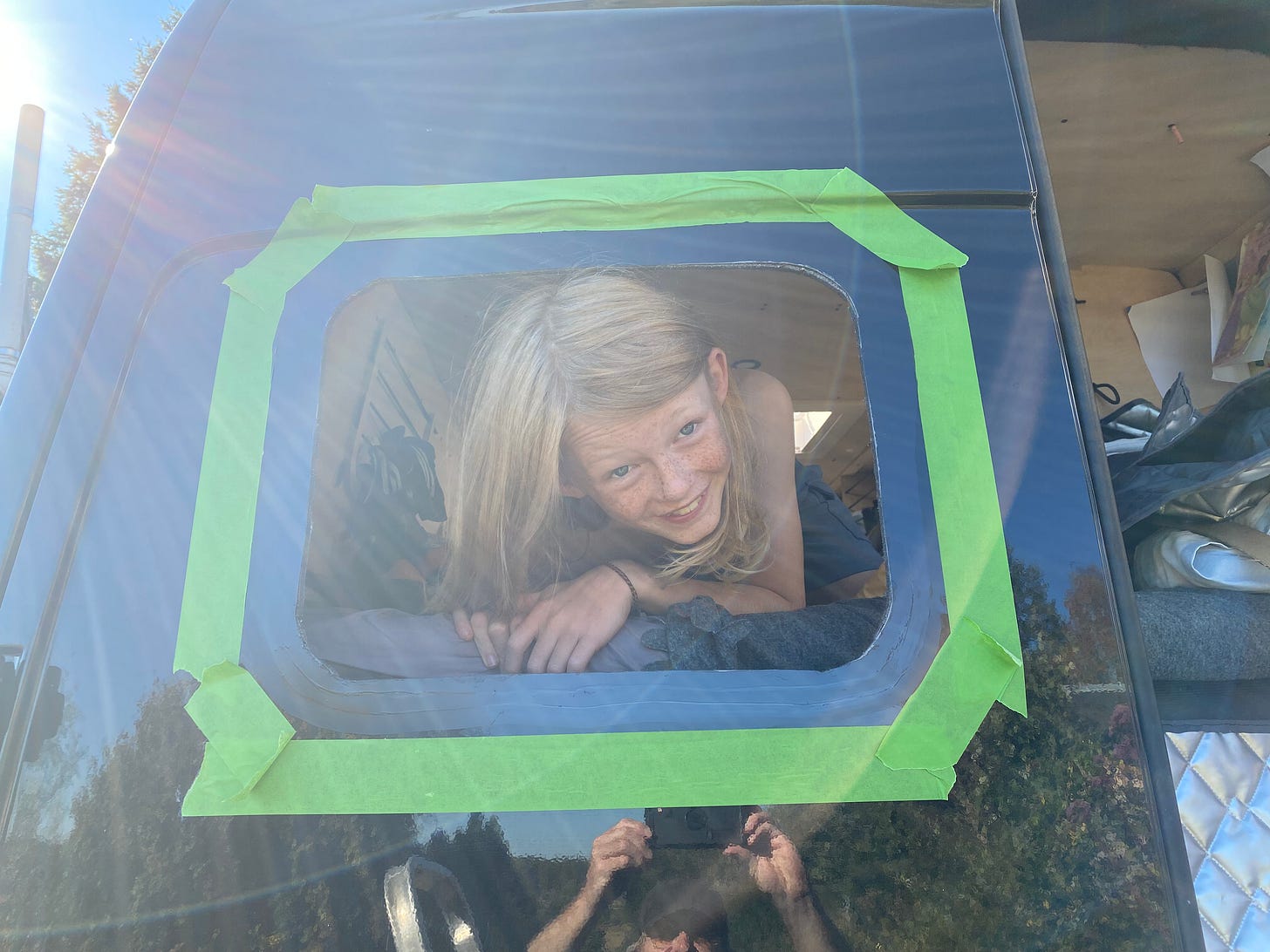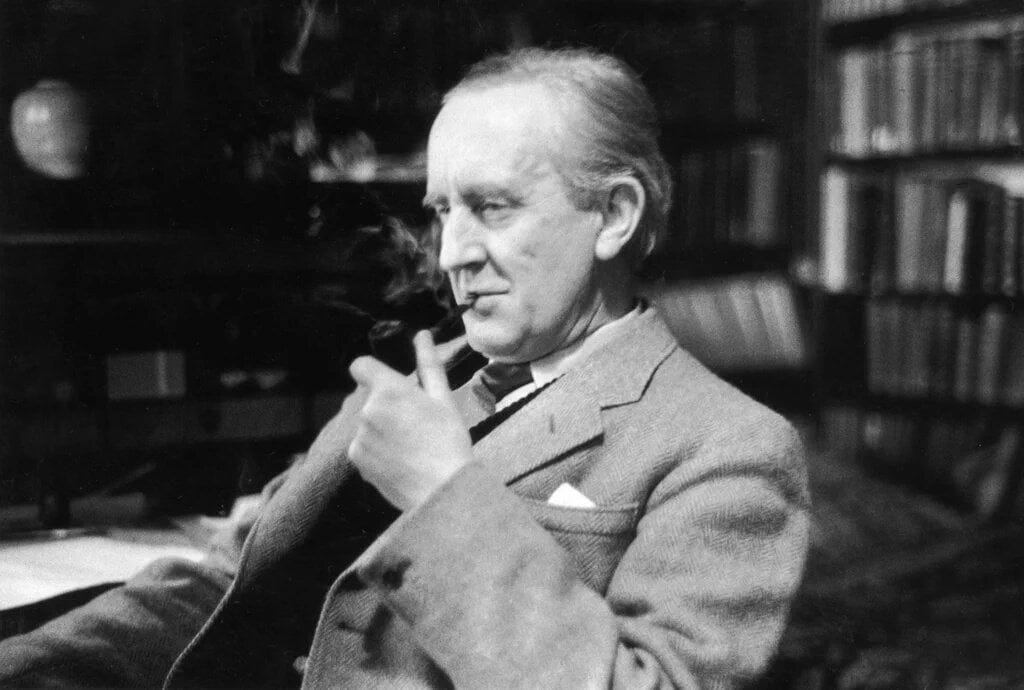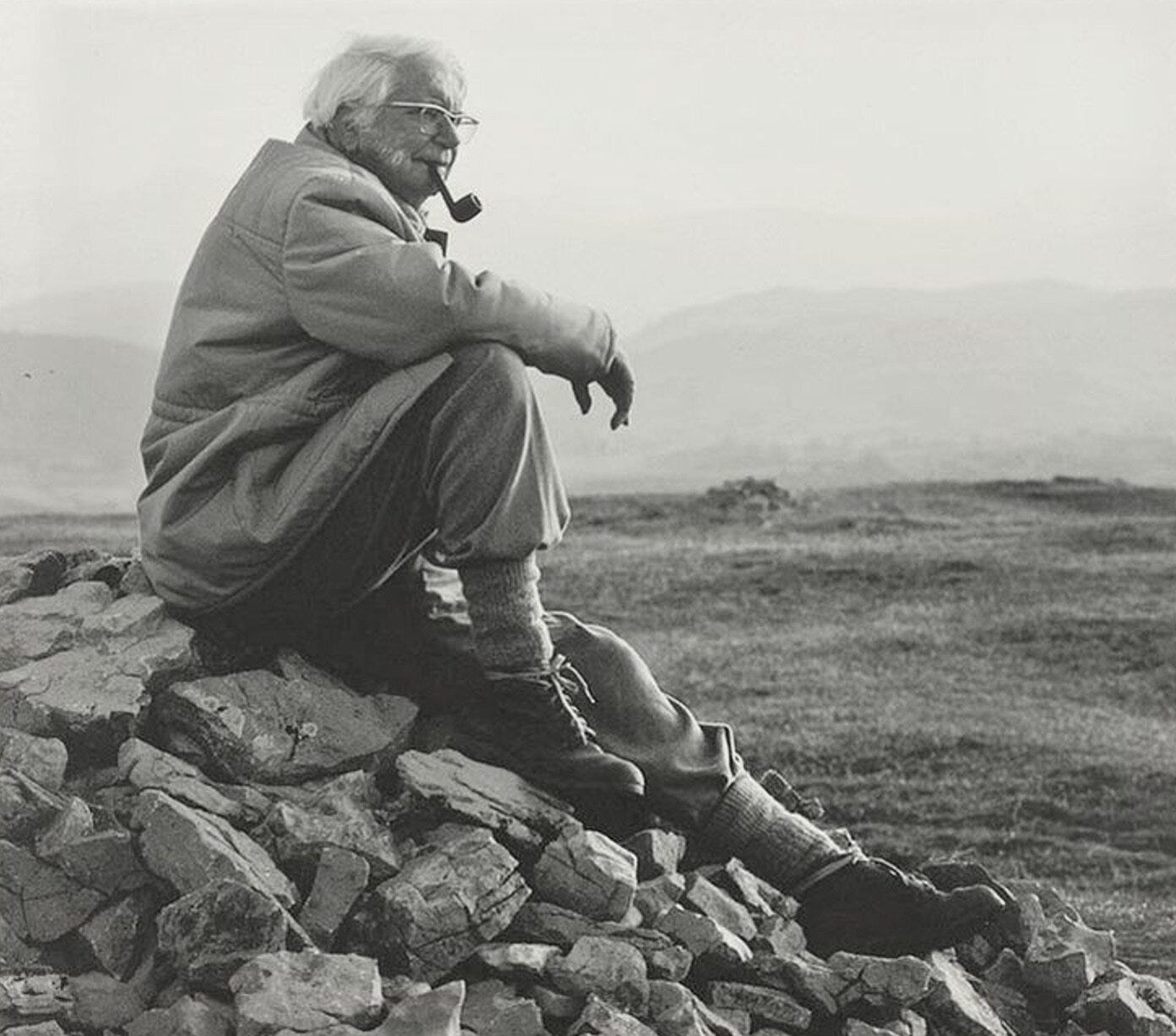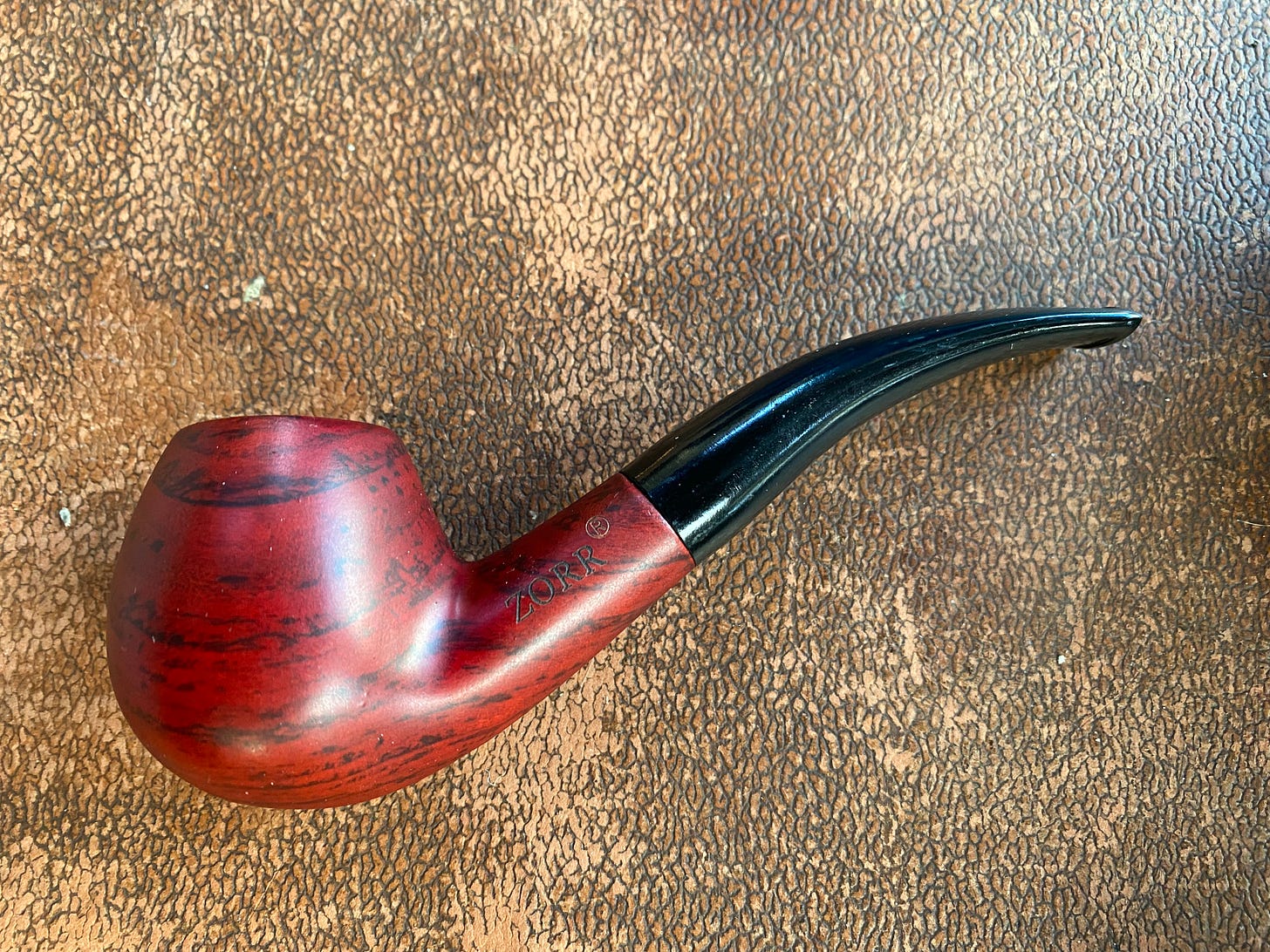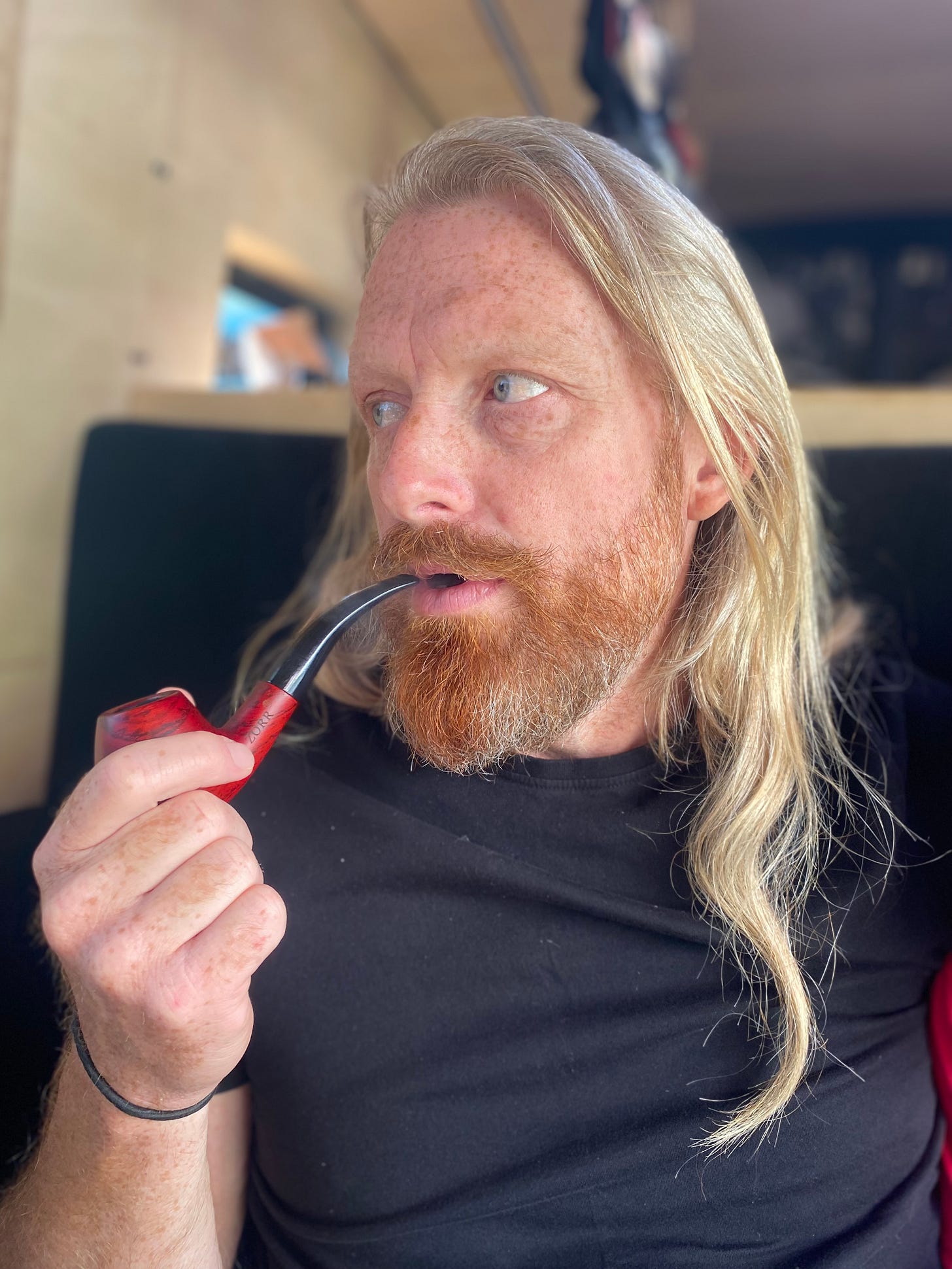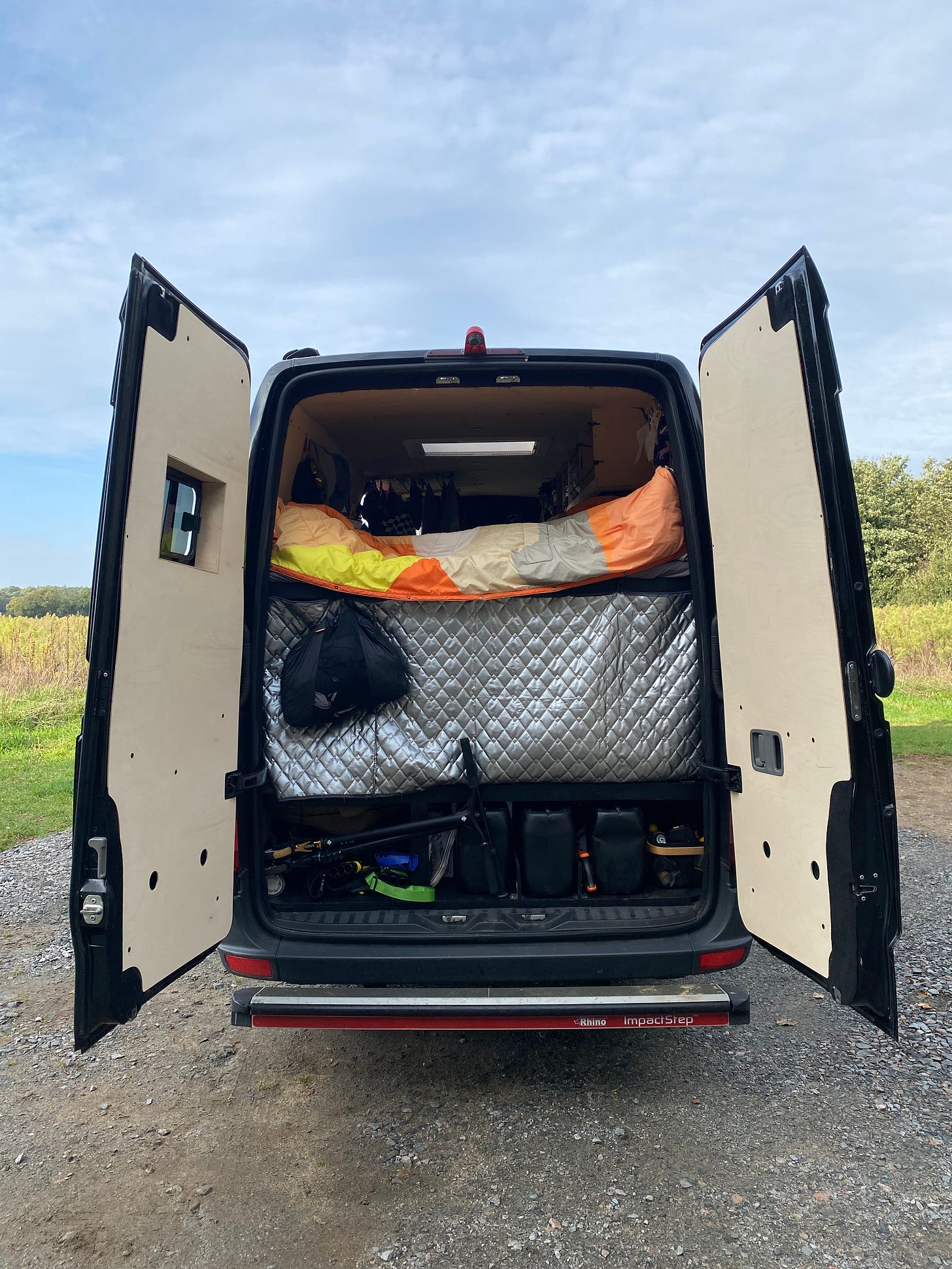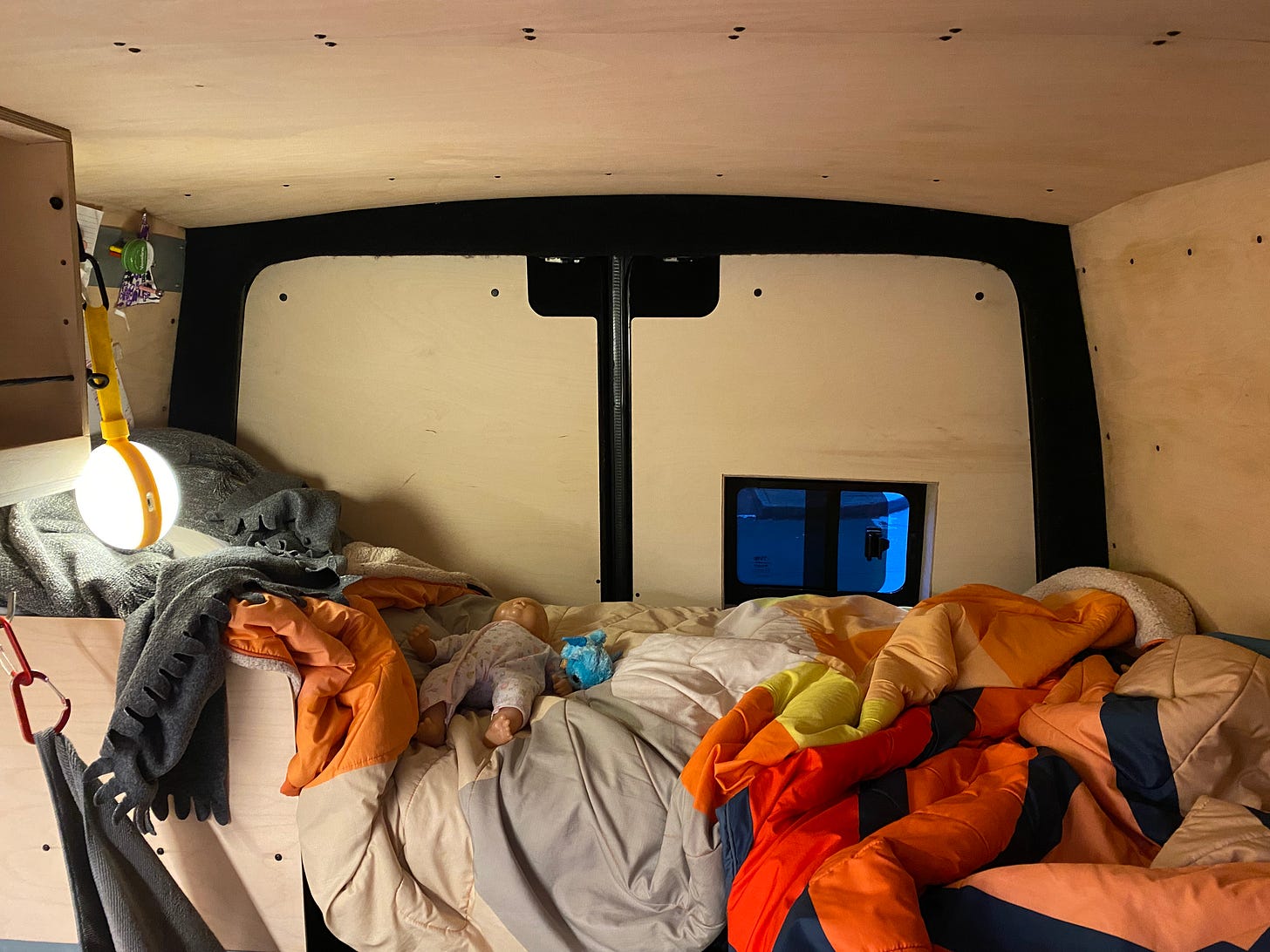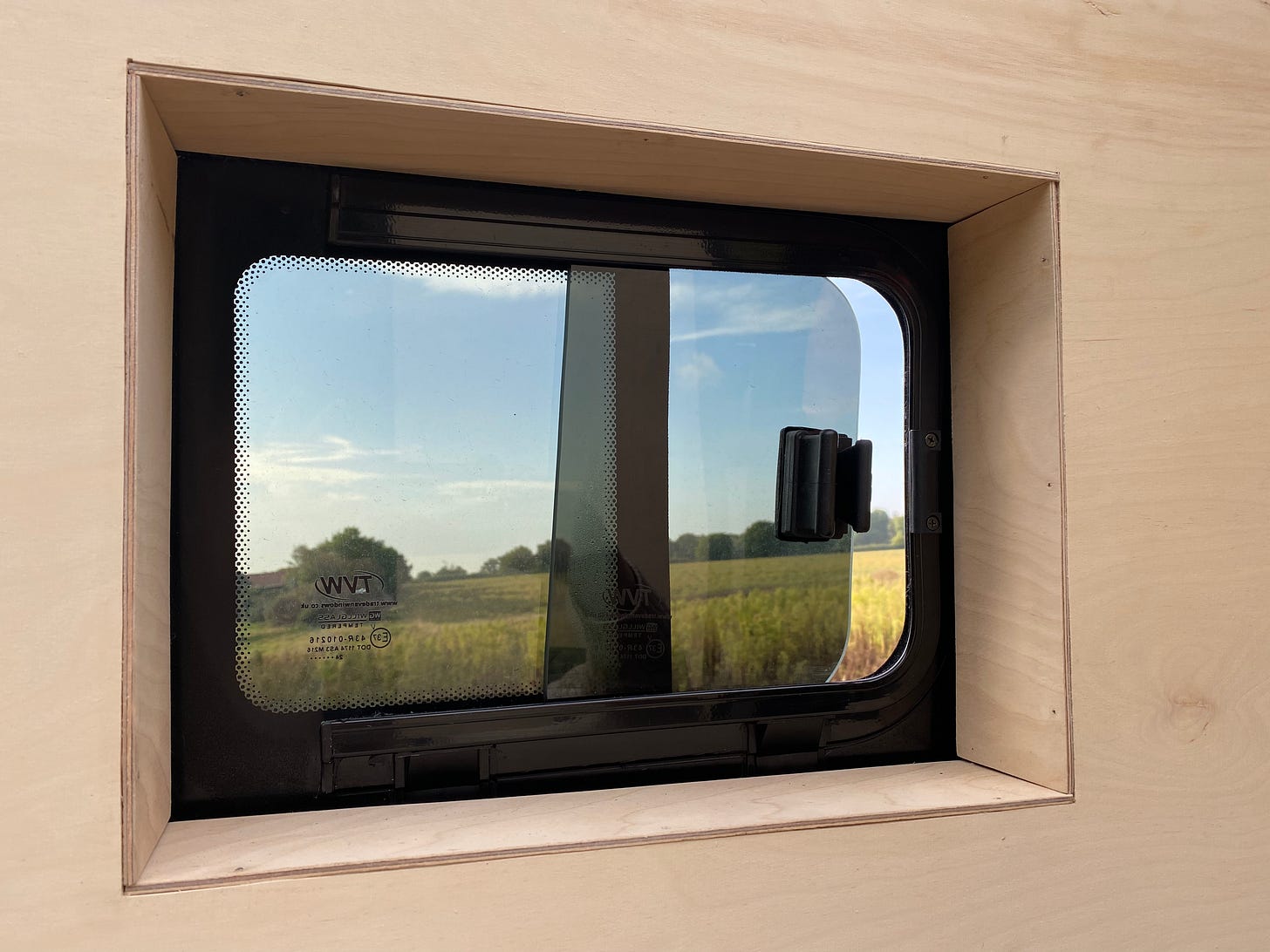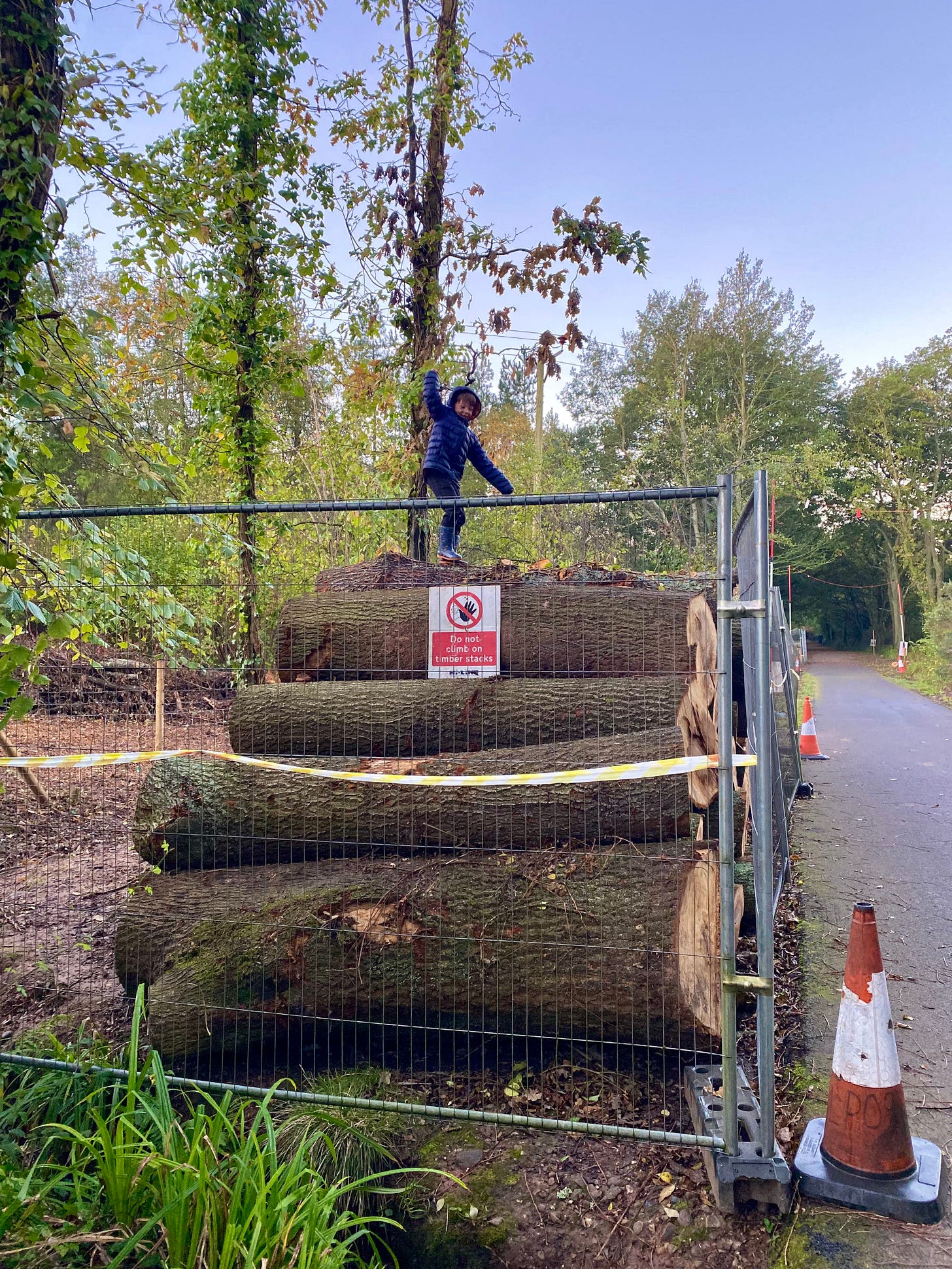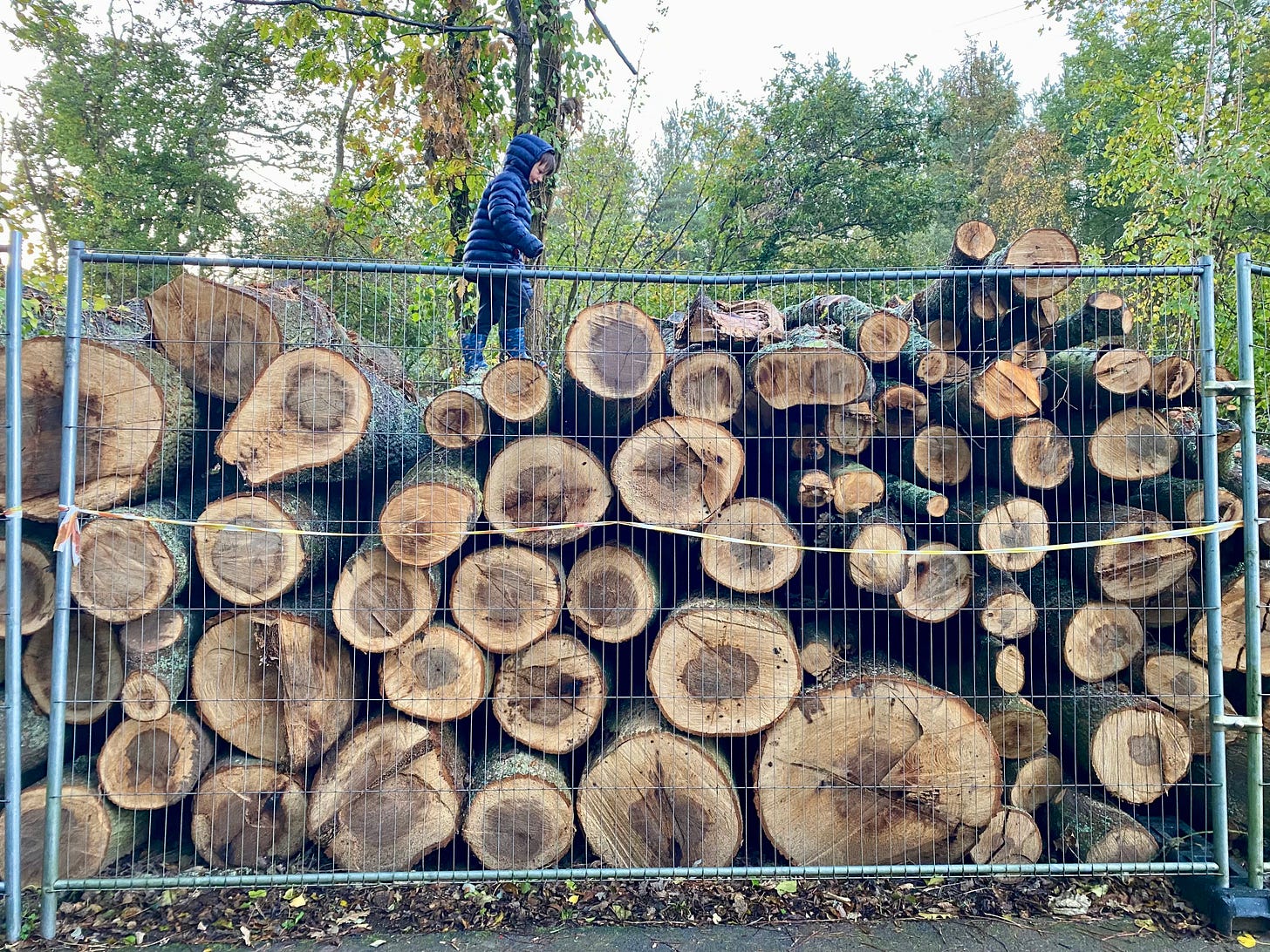Roving from one thing to another.
Stick that in your pipe and smoke it
Nicotine
I bought a pipe and smoked it.
Partly in defiance of free-gear no-beer two-tier Keir’s1 latest prosecution of free will,2 but mainly due to curiosity about this sort of thing:
The air was heavy with good tobacco-smoke and the pleasant warmth of tea, and as Rickie became more sleepy the events of the day seemed to float one by one before his acquiescent eyes.3
My newly-purchased old-fashioned pipe was from an old-fashioned tobacconist in an old-fashioned spa town.
The tobacconist, W. Appleyard & Son on Grover Parade, in Buxton, Derbyshire, stocks tobacco and smoking accessories in one half of the shop and children’s toys in the other - a delightful combination I think you’ll agree.
As well as the pipe I bought pipe cleaners, a tamper, matches and of course tobacco: twenty five grams of something called Spirit of Scotland.
A few hours later, after we had driven a little further south, I smoked my first pipe in Mill Street in Leek, Staffordshire, while sitting in the van, and very pleasant it was too.
Sunshine streamed through the window. I savoured the purposeful ritual: packing the bowl, striking the match, nestling the burning head against the tobacco, watching the flame ignite the crumbled leaf, pulling air through to encourage combustion, long slow puffs, tamping, striking another match, warm smoke wafting around my head, a fine aroma on the roof of the mouth, the curve of the bowl sitting snug in my left hand. Two minutes in and I had committed to a lifetime of pipe smoking.
But then came the nicotine hit. I didn’t like this much. In fact I didn’t like this at all. The agreeable moment of reverie dissolved and was replaced by a dizzy, light-headed, altered state.
I watched as my mind took a definitive step back from the present moment and positioned itself at a slight distance, wired, remote and removed with glazed eyes and a funny look on its face.
It was as if I had been nudged off centre, pushed outside of reality, and was now observing the world with a sidelong glance and a knowing expression - I am here, but I am not here, you can’t get me, I am out of reach, unattainable.
I sat there in the van with my family moving around me, physically present but mentally absent. I might have appeared calm; but I was in fact detached.
A week later by the sea in Bawdsey, Suffolk, I tried again, hoping to enjoy the pipe without being mentally abducted by nightshade nicotine. Unsurprisingly the same thing happened: wired detachment. I knew I could not warm to this effect and did not want to pursue it and, with that, my short-lived pipe-smoking journey came to an abrupt end.
I was genuinely disappointed. I felt hoodwinked by the ideal of the calm and composed pipe smoker sitting in an armchair by the fire, contemplating the world: the smiling grandfather; the erudite literary scholar; the English gentleman.
If my experience had any truth in it, this was a flagrant misrepresentation. The pipe smoker is not calm and contemplative, he is simply absent, there but not there, removed from the world whilst in plain site.
Sugar
In case you think I’m condemning people who consume psychoactive substances, I’m not. I have been dependent on refined sugar, a psychoactive substance,4 since I was a very small child. It seems I couldn’t tolerate life without ready access to a bottle of orange-flavoured squash, which was administered regularly. Forty five years on, I’ve ditched the squash, but I’m still reliant on the active ingredient.
I’m not fussy about the delivery mechanism: chocolate, sweets, biscuits, crisps, cakes, buns, pastries, and of course, sweet cups of tea (see caffeine).
I have no idea what reality feels like without it being altered by the sugar high. What I fear is that it resembles the moments of my childhood when I felt gnawing hunger, which was less about calories (I had plenty), and more about the flow of truthful ineffable love, which nourishes the heart and soul.5 I had a void which needed filling and sugar filled it - up to a point.
Sugar is a psychoactive substance. It is the world’s least discussed and most widespread addiction. And it is one of the hardest of all habits to kick. After alcohol and tobacco, sugar is the most damaging addictive substance consumed by human beings. As with all stimulants, ingestion of sugar is followed by a brief euphoric “rush,” which is itself followed by depression and guilt.6
Apart from three days enforced abstinence from sugar in 2011, I’ve never managed to go without it for very long. I also find it very compelling in tea, which leads me on to my next point.
Caffeine
Put the kettle on. I have a long-term dependency on caffeine. This began a little later in life, at five or six-years-old, with a nice cup of tea and two sugars. Later, in my teens, I branched out and pretended to like coffee so I could drink it black with my philosophical friend and discourse with him late into the night. Then I discovered the classic appeal of the Italian stove-top moka pot, marvelling as it gurgled away merrily on the blue flame of the camping gas stove.
Back then, caffeine sharpened my focus, and provided va-va-voom, but it also made my heart beat in an irregular fashion and fuelled a deep existential anxiety.
I have managed to get off caffeine twice in my life, each time for about a year. I remember those years as more calm, level and peaceful (if a little uneventful and a tad humdrum) but in each case, a single cup of the most commonly consumed nootropic in the world was enough to convince my central nervous system that this was an experience to be repeated and I was hooked back in.
When I rise each morning between five and six o’clock I start each day with coffee. I’m drinking one now as I write.
Alcohol
I started drinking pints of cider in a bucolic country pub called The Greyhound in Whitchurch-on-Thames in Oxfordshire, when I was sixteen or seventeen. I was late starting: classmates had been sloshing back cans in the park for years before I tasted my first drop.
Binge-drinking with friends in the pubs and clubs of nearby Reading town soon followed. When I came home from those nights out my clothes smelt of the cigarette smoke which, back then, filled the drinking establishments like fog.
I kicked alcohol once, thanks to the serenity of Alcoholics Anonymous, and stayed sober for ten years. I didn’t miss drinking at all during that time. It was a relief not to have to suffer people stupefied by beer, I never had a hangover and I could always drive.
Recently I have taken to the grape and the grain again and I’m hoping that my relationship with alcohol will remain moderate.
Dopamine
In 1997 I set up my first email account (Hotmail) and signed my first mobile phone contract (Vodafone) to get my hands on the paradigmatic Nokia 3210.7
This catapulted me into the early days of big-tech screen-hell, although at the time I thought I was stepping into a breathtaking utopian future, as did millions of other young people like me, but it turned out to be a dopamine-dependent panopticon prison.
Mobile phones and other devices with screens affect our brains and change our reality: notifications, likes, and other forms of digital engagement trigger release of the brain chemical dopamine, a major reward and pleasure neurotransmitter, creating a feedback loop that encourages us to keep coming back to the screen for more - a daily reality I suspect many of us will recognise.
Since screen-tech came into my life, I’ve never been free of it. I got rid of my mobile phone once, which reduced my exposure significantly until a friend, who wanted to draw me back into the fold, bought me a cheap handset from Tesco. That particular phone was the first in an unbroken lineage, which continues to this day with my fourth iPhone.
Casting an eye over this mind-altering collection, I think I’ve lived a rather sheltered life overall.
Nevertheless, with three psychoactive compounds (sugar, caffeine, and alcohol) regularly in my body, and a dopamine stimulator device frequently pinging my brain, I am miles away from experiencing reality as it really is.
I’ve passed the sugar and caffeine dependencies on to my children, but when it comes to screen-tech, thanks to the life I have chosen for them, they are blissfully free of the black mirror, most of the time.
One might argue that due to the crushing reality of the world we have created, these substances are necessary medicine for the successful functioning of the human component in the modern technological system.
If we weren’t able to alter reality with our drugs or devices of choice, and could suddenly see, with clear-eyed lucidity, what has become of the earth, and what we are doing to it and each other, we would either spiral into despair or rise up in outrage and tear it all down with our bare hands.
I don’t know anyone who lives in an unadulterated reality. I live an adulterated, drug-affected life and, along with millions of others, I’ll probably go to my grave without ever knowing the truth.
Out of the mouth of babes8
Our five-year-old North is sweeping up in the van:
‘I’m just going to put these bits under the carpet Mummy.’
‘You can’t sweep things under the carpet North.’
‘I thought that’s how it worked.’
Van Upgrades
Tara bought the van two years ago in October 2022. It has passed its MOT again: this year to the tune of hundreds of pounds, rather than the thousands it cost last year. It’s serving us well. After more than a year on the road, we’ve made a few tweaks to meet the particular demands of living in a vehicle.
Shower
We’ve ditched the shower after using it only once. It’s a very clever piece of kit that draws a supply from our drinking-water jerry cans. Camping gas heats the water and powers the pump. The magnetic shower head attaches to the outside of the van enabling gloriously hot outdoor showers under the sun or stars, wherever you may be. At least that was the plan. What we discovered when we used it is that one shower session drains our water supply and uses a lot of gas.
I don’t think this has anything to do with the efficiency of the product, rather it is a reflection of how wasteful and costly hot showers are. They have become so ubiquitous in conventional homes, we just take them for granted, and in a house, where everything is laid on, we’re not necessarily confronted directly with how much water, gas and electricity they use in a single session.
The shower in our van has an inflow pipe that can be dropped into a river or stream to harness an abundant water supply and while this seems like a good idea in theory, it proved to be quite impractical out on the road.
Unused, the shower sat in the back of the van taking up valuable space so we sold it. We wash instead in the sea and in streams, in showers at campsites and leisure centres, and in service station facilities provided for truckers.
Water
We’ve doubled the amount of drinking water in the van. We managed for a year with four ten-litre jerry cans, refilling whenever we could. Once the shower had gone there was room in the back and we’ve filled it with four more jerry cans so we can carry eighty litres. This means we can spend longer in the wild before having to come back to civilisation to top up.
Condensation
With six people inside, good airflow is essential to limit the build-up of condensation and prevent damp and mould. We put a lot of thought into ventilation when we planned the van conversion but the real test has been the reality of living in it for the last fifteen months.
It quickly became clear there was a bubble at the rear where air was getting trapped and moisture condensing on the back doors. Our original back door panels, so beautifully designed and executed by Tara’s father Brian, started to deteriorate and had to be ripped out. For many months the bare metal and white fluffy insulation remained exposed.
Tara thought it over for months and eventually decided on a window-plus-vent solution. We cut holes in the back doors: a big one for the new rear window and four small circular holes for air vents.
Brian briefly reprised his role as van-interior craftsman to fit new birch plywood door panels complete with window surround and internal air vent tubing. It looks handsome and with a bit of luck it will keep the air flowing through the van and take some more of the moisture with it. Time will tell.
For those of you reading for free, consider becoming a paid subscriber from £5 a month. Writing is my craft: direct, honest and authentic. Money expresses your appreciation.
Or become a spontaneous supporter with a one-off donation (any amount).
What to do when the sign says don’t climb on the log pile
Beach bench
Sitting on a bench with warm sunshine on my face on a blue-sky October day, a messenger-angel came with wisdom.
He landed next to me on Queen’s Drive esplanade, looking out to sea across Exmouth Beach.
Wearing expensive glasses, he took the form of a seventy-two-year-old man: a former Cornish tin miner and Bristol Blue Glass blower.
After a moment he said:
‘They keep telling me to stop smoking but I don’t want to go on too long and it’s the slowest form of suicide.’
We laughed together.
‘I spent my whole life trying to make women happy and never succeeded. My second wife died when I was sixty and I haven’t been in the dog house for ten years - liberation!’
We laughed some more.
Then he flew away.
This is my land
In 1066 William the Conquerer9 took control of England and since then his descendants and cronies have held much of the land, wealth and power.
One way or another, they still own most of England, Scotland and Wales, and grudging credit must be extended to generations of entitled aristocrats who have managed to cling on to their war spoils for nearly a thousand years.
The political dexterity and social skill, not to mention the venal manipulation and outright exploitation, they must have employed to sustain their position, is difficult to imagine.
Here then is a glimpse behind the curtain, a short revelatory journey into the dark underworld of hereditary wealth and power, from celebrated truth-tellers Mike Leigh and Jim Broadbent.
‘This is my land, my forefather’s land and my descendants land and what we do with it is our business. And we’ve kept those other bastards out and that’s good isn’t it. Isn’t it?’10
If you’ve got something to say, write a comment. I will read and respond (eventually).
Please consider sharing my words. That's how I find new readers.
Nina Power on Substack:
The government is considering tougher rules on outdoor smoking.
The Longest Journey by E. M. Forster (1907).
Psychoactive (or psychotropic) refers to a substance that is capable of affecting mental activity: sugar is a psychoactive substance while psychoactive drugs are drugs that affect your mind: for example nicotine and alcohol.
Very few people are able to give truthful ineffable love, whether to their children or anyone else.
Food of the Gods: A Radical History of Plants, Psychedelics and Human Evolution by Terence McKenna (1992).
Jesus said to them, “Yes; have you never read, ‘Out of the mouths of infants and nursing babies you have prepared praise for yourself’?”
The New Oxford Annotated Bible with Apocrypha: New Revised Standard Version (2018).
More properly known as William the Bastard.
A Sense of History, written and performed by Jim Broadbent, directed by Mike Leigh (1992).

